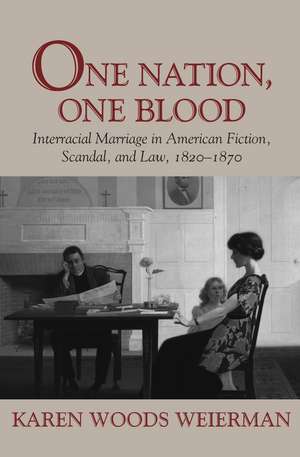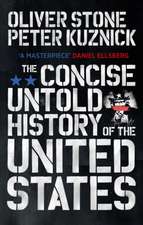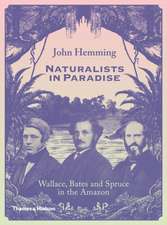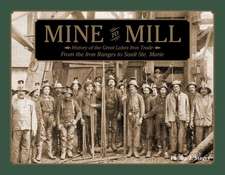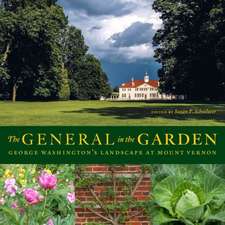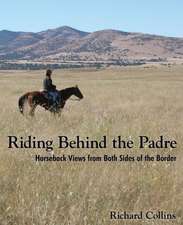One Nation, One Blood: Interracial Marriage in American Fiction, Scandal, and Law, 1820-1870
Autor Karen Woods Weiermanen Limba Engleză Paperback – 4 oct 2010
The proscription against interracial marriage was for many years a flashpoint in American culture. In One Nation, One Blood, Karen Woods Weierman explores this taboo by investigating the traditional link between marriage and property. Her research reveals that the opposition to intermarriage originated in large measure in the nineteenth-century desire for Indian land and African labor. Yet despite the white majority's overwhelming rejection of nonwhite peoples as marriage partners, citizens, and social equals, nineteenth-century reformers challenged the rule against intermarriage. Dismissing the new "race science" that purported to prove white superiority, reformers held fast to the religious notion of a common humanity and the republican rhetoric of freedom and equality, arguing that God made all people "of one blood."
The years from 1820 to 1870 marked a crucial period in the history of this prejudice. Tales of interracial marriage recounted in fiction, real-life scandals, and legal statutes figured prominently in public discussion of both slavery and the fate of Native Americans. In Part One of this book, Weierman focuses on Indian-white marriages during the 1820s, when Indian removal became a rallying cry for New England intellectuals.
In Part Two she shifts her attention to black-white marriages from the antebellum period through the early years of Reconstruction. In both cases she finds that the combination of a highly publicized intermarriage scandal, new legislation prohibiting interracial marriage, and fictional portrayals of the ills associated with such unions served to reinforce popular prejudice, justifying the displacement of Indians from their lands and upholding the system of slavery. Even after the demise of slavery, restrictions against intermarriage remained in place in many parts of the country long into the twentieth century. Not until the 1967 Loving v. Virginia decision did the Supreme Court finally rule that such laws were unconstitutional.
Finishing on a contemporary note, Weierman suggests that the stories Americans tell about intermarriage today—stories defining family, racial identity, and citizenship—still reflect a struggle for resources and power.
The years from 1820 to 1870 marked a crucial period in the history of this prejudice. Tales of interracial marriage recounted in fiction, real-life scandals, and legal statutes figured prominently in public discussion of both slavery and the fate of Native Americans. In Part One of this book, Weierman focuses on Indian-white marriages during the 1820s, when Indian removal became a rallying cry for New England intellectuals.
In Part Two she shifts her attention to black-white marriages from the antebellum period through the early years of Reconstruction. In both cases she finds that the combination of a highly publicized intermarriage scandal, new legislation prohibiting interracial marriage, and fictional portrayals of the ills associated with such unions served to reinforce popular prejudice, justifying the displacement of Indians from their lands and upholding the system of slavery. Even after the demise of slavery, restrictions against intermarriage remained in place in many parts of the country long into the twentieth century. Not until the 1967 Loving v. Virginia decision did the Supreme Court finally rule that such laws were unconstitutional.
Finishing on a contemporary note, Weierman suggests that the stories Americans tell about intermarriage today—stories defining family, racial identity, and citizenship—still reflect a struggle for resources and power.
Preț: 262.40 lei
Nou
Puncte Express: 394
Preț estimativ în valută:
50.23€ • 54.58$ • 42.22£
50.23€ • 54.58$ • 42.22£
Carte tipărită la comandă
Livrare economică 21 aprilie-05 mai
Preluare comenzi: 021 569.72.76
Specificații
ISBN-13: 9781558498013
ISBN-10: 155849801X
Pagini: 224
Dimensiuni: 229 x 152 x 13 mm
Greutate: 0.45 kg
Ediția:First Edition
Editura: University of Massachusetts Press
Colecția University of Massachusetts Press
ISBN-10: 155849801X
Pagini: 224
Dimensiuni: 229 x 152 x 13 mm
Greutate: 0.45 kg
Ediția:First Edition
Editura: University of Massachusetts Press
Colecția University of Massachusetts Press
Notă biografică
KAREN WOODS WEIERMAN is associate professor of English at Worcester State College.
Recenzii
"This is a painstakingly researched work—which, however, manages to present its massive archival legwork elegantly. . . . The book contains fascinating material and unites different disciplines and Native American, African American, and interracial history."—Werner Sollors, editor of Interracialism: Black-White Intermarriages in American History, Literature, and Law
"I enjoyed reading this study. It speaks to enduringly important themes in American history, and it adds new dimensions to our understanding of them. . . . By giving extended consideration to intermarriage between whites and American Indians, along with that between blacks and whites, it presents a fuller picture than we have been used to seeing and reminds us how complicated the problem of race has always been in this country. . . . The cases Weierman has recovered and explored are significant ones, and her analysis of them is careful and shrewd."—James O'Toole, author of Passing for White: Race, Religion,
and the Healy Family, 1820–1920
"With her thirty-plus pages of footnotes, the author creates a palatable stew of history, religion, politics, culture, and racial identity. The result is a question for Americans today in the face of growing multiculturalism: whether historical knowledge and cultural critique can help to reverse centuries of fear and prejudice so that we may see ourselves as one nation made 'of one blood."—Foreword
"I enjoyed reading this study. It speaks to enduringly important themes in American history, and it adds new dimensions to our understanding of them. . . . By giving extended consideration to intermarriage between whites and American Indians, along with that between blacks and whites, it presents a fuller picture than we have been used to seeing and reminds us how complicated the problem of race has always been in this country. . . . The cases Weierman has recovered and explored are significant ones, and her analysis of them is careful and shrewd."—James O'Toole, author of Passing for White: Race, Religion,
and the Healy Family, 1820–1920
"With her thirty-plus pages of footnotes, the author creates a palatable stew of history, religion, politics, culture, and racial identity. The result is a question for Americans today in the face of growing multiculturalism: whether historical knowledge and cultural critique can help to reverse centuries of fear and prejudice so that we may see ourselves as one nation made 'of one blood."—Foreword
